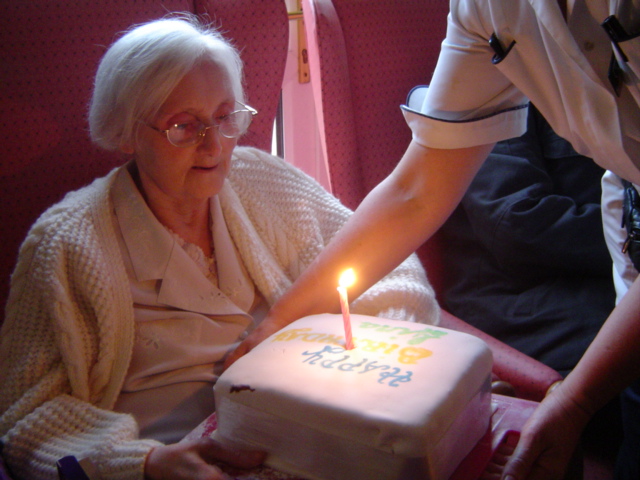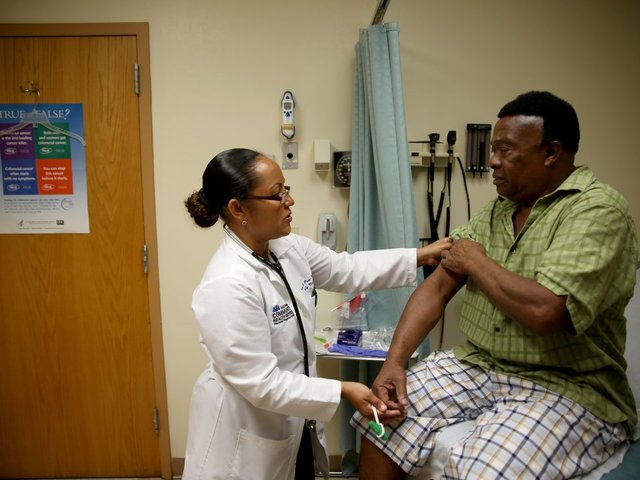The topic of the right help for a relative in need of care is a very complex question that requires a high degree of sensitivity. On the one hand, it is a very personal, individual topic, which on the other hand is also influenced by demographic developments in Germany. What does a comparison between nursing homes and care at home show?
Let’s first take a look at the personal component. Do you have a family member who can no longer provide for himself due to his age and who needs support in everyday life? One of your relatives has dementia and in his constantly worsening condition you are looking for help that grows with your tasks. So you can flexibly increase the volume of your services, depending on what your relative’s condition requires? Of course, in such a situation you are looking for the optimal care support for your loved one, because for many people it is nowadays impossible to provide this care themselves.

Intensive Care
On the one hand it is an enormous expenditure of time to care for an aging or ill relative permanently. As a rule, intensive care requires the task of the profession and the main concentration on the person in need of care. Not everyone is able to make this temporal sacrifice. In addition, there are the physical and psychological burdens associated with intensive care. On the one hand, you must be able to muster a certain amount of strength to help your family member out of bed, for example, or to secure them when walking in such a way that they cannot fall.
On the other hand, dementia sufferers in particular are also subject to strong psychological stress. It is not easy to see the mental decay of a loved one with whom you are so close as a caring help around the clock. Personality changes and loss of reference to or memory of you are normal symptoms of progressive dementia. It is often easier for family members to accept these developments as visitors than as constant daily companions.
Difficult situation in nursing homes
German nursing homes are examined by the medical services of the health insurance funds (MDK) and assessed with school grades. The German average of these nursing home grades is an excellent 1.2 – very good. So are there no problems at all in German nursing homes, as is so often reported? Wrong. Because the MDK rating contributes to less rather than more transparency. Poor marks in elementary areas of a nursing home, such as nursing and medical treatment, can be compensated by easily attainable good marks in less important areas, such as the graphic design of the menu. If one relies only on the overall rating of a nursing home, it is not possible to conclude from this whether one is dealing with a truly good home or not.
For real findings about the nursing and medical standards of a nursing home, the grades must therefore be evaluated in detail – and here over 60 percent of all German nursing homes reveal sometimes serious structural, personnel or technical deficiencies. Unfortunately, reports of bedsores or dehydrated seniors are not uncommon. In most cases the personnel is simply missing to have enough time for personal and sensitive care. If there is an emergency in addition to the much too short time per patient, your relative may not be served a glass of water or the necessary turning of your family member fails.
Problems caused by demographic change
The problem here is usually not negligence or poor management of nursing homes, but the great discrepancy between trained nursing staff and senior citizens in need of care. This need stems from demographic change in Germany. The birth rate has been too low for decades, but life expectancy is rising continuously. These two developments mean that German society is getting older and older on average. Older people need care and their numbers are growing steadily. Young people, on the other hand, who could learn the profession of caregiver, are lacking. For example, it is extremely difficult for nursing homes to generate enough specialist staff to meet the high demand for nursing care.

Advantages of nursing homes: medical care and social cohabitation
But not everything is bad in nursing homes! Above all the accommodation of a family member with a high need not only for care, but also for medical control, in a nursing home can be the best solution for all sides. Your sick or weak family member is medically monitored around the clock and first aid can be provided quickly in an emergency.
In addition, sprightly pensioners who enjoy social contact can also benefit from living in a nursing home. Exchange with other people in the same phase of life can be a pleasure for many seniors. Interests are shared, fears can be discussed and the last phase of life can be spent together with new friends or acquaintances outside the familiar family circle.
Flexible care through care at home
The great advantage of 24-hour care at home is that your relative is not torn out of his or her familiar surroundings. This enables them to spend the rest of their lives in their home, which they have often lived in for decades, even if they require a lot of care.
The care at home by a professionally trained nurse from abroad in the EU captivates in comparison to nursing homes by the great flexibility and individuality of the care. The wishes and needs of the person in need of nursing care can be precisely catered for. The caregiver’s attention is focused solely on your relatives, each patient is supported by his or her personal support.
USE OF A CAREGIVER
The caregiver’s work can be limited to household tasks such as shopping, keeping the apartment clean and preparing meals. However, it can also take on the extent of helping to maintain personal hygiene, getting up and dressing. Depending on the needs of your family member, the caregiver will be there for him or her. Also from a social point of view, your relative will always have a helping hand during walks and activities, as well as an open, interested ear at his or her side.
INTEGRATION CARE SERVICE
In the case of continuous medical tasks, home care can be combined with an outpatient care service. Nurses from other EU countries are prohibited by law from providing medical care, even if they have received medical training in their home country. If the need for medical care goes beyond regular visits to the doctor, it is advisable to call in an outpatient nursing service.
